77 The Inquiry Process in Academic Research Writing
Teaching & Learning and University Libraries
Introduction
Research assignments—resulting in final products such as term papers, essays, posters, multimedia projects, blog posts, 3-D models, etc.—are a common requirement in college courses, but they can also be a source of stress when you aren’t sure what to do. This guide is intended to decrease your stress and increase your comfort with such assignments.
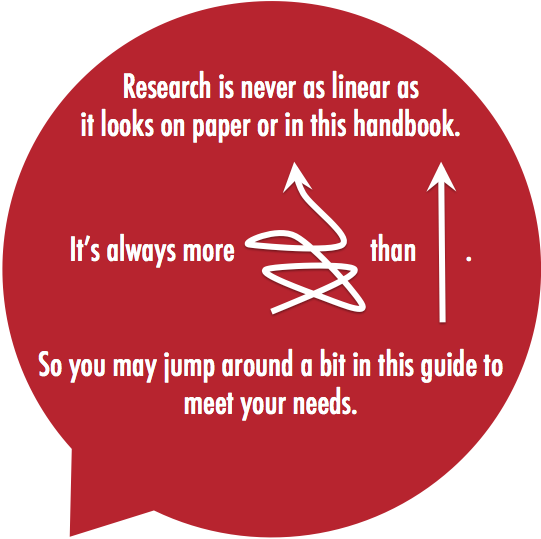
Tip: Decoding Writing Assignments
Professors steeped only in the research traditions of their own discipline may be unaware of how different conducting research can be in other disciplines. They may assume you already know what they expect for the research assignment they just gave you. But that may not be true at all: you may only know about how to conduct research in another discipline or, especially if you’ve been taking courses in multiple disciplines, be utterly confused because the expectations seem to change from course to course. This handout from the Ohio State University Writing Center can help you figure out what you need to do for your assignment.
Both professional researchers and successful student researchers develop research questions. That’s because research questions are more than handy tools; they are essential to the research process.
The process of inquiry starts with developing a research question. By defining exactly what the researcher is trying to find out, these questions influence most of the rest of the steps taken to conduct the research. That’s true even if the research is not for academic purposes but for other areas of our lives.
For instance, if you’re seeking information about a health problem in order to learn whether you have anything to worry about, research questions will make it possible for you to more effectively decide whether to seek medical help–and how quickly.
Or, if you’re researching a potential employer, having developed and used research questions will mean you’re able to more confidently decide whether to apply for an internship or job there.
The confidence you’ll have when making such decisions will come from knowing that the information they’re based on was gathered by conscious thought rather than serendipity and whim.
Narrowing a Topic
For many students, having to start with a research question is the biggest difference between how they did research in high school and how they are required to carry out their college research projects. It’s a process of working from the outside in: you start with the world of all possible topics (or your assigned topic) and narrow down until you’ve focused your interest enough to be able to tell precisely what you want to find out, instead of only what you want to “write about.”
Process of Narrowing a Topic
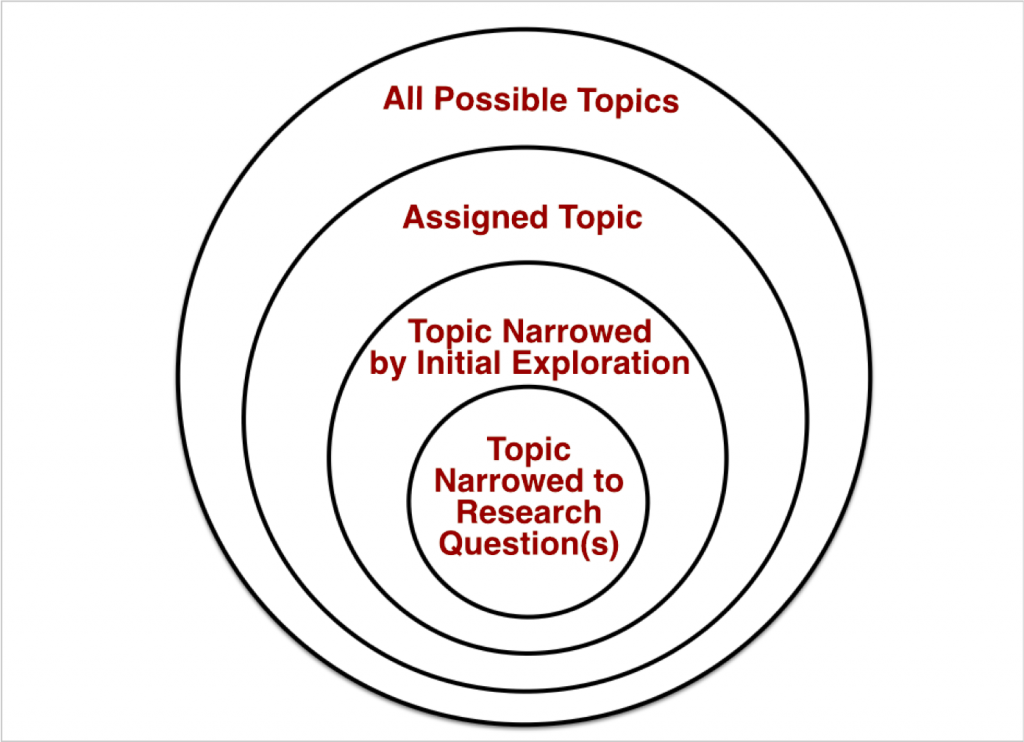
and choosing narrower and narrower subsets until you have a specific
enough topic to form a research question.
All Possible Topics – You’ll need to narrow your topic in order to do research effectively. Without specific areas of focus, it will be hard to even know where to begin.
Assigned Topics – Ideas about a narrower topic can come from anywhere. Often, a narrower topic boils down to deciding what’s interesting to you. One way to get ideas is to read background information in a source like Wikipedia.
Topic Narrowed by Initial Exploration – It’s wise to do some more reading about that narrower topic to a) learn more about it and b) learn specialized terms used by professionals and scholars who study it.
Topic Narrowed to Research Question(s) – A research question defines exactly what you are trying to find out. It will influence most of the steps you take to conduct the research.
ACTIVITY: Which Topic Is Narrower?
Why Narrow a Topic?
Once you have a need for research—say, an assignment—you may need to prowl around a bit online to explore the topic and figure out what you actually want to find out and write about.
For instance, maybe your assignment is to develop a poster about “spring” for an introductory horticulture course. The instructor expects you to narrow that topic to something you are interested in and that is related to your class.
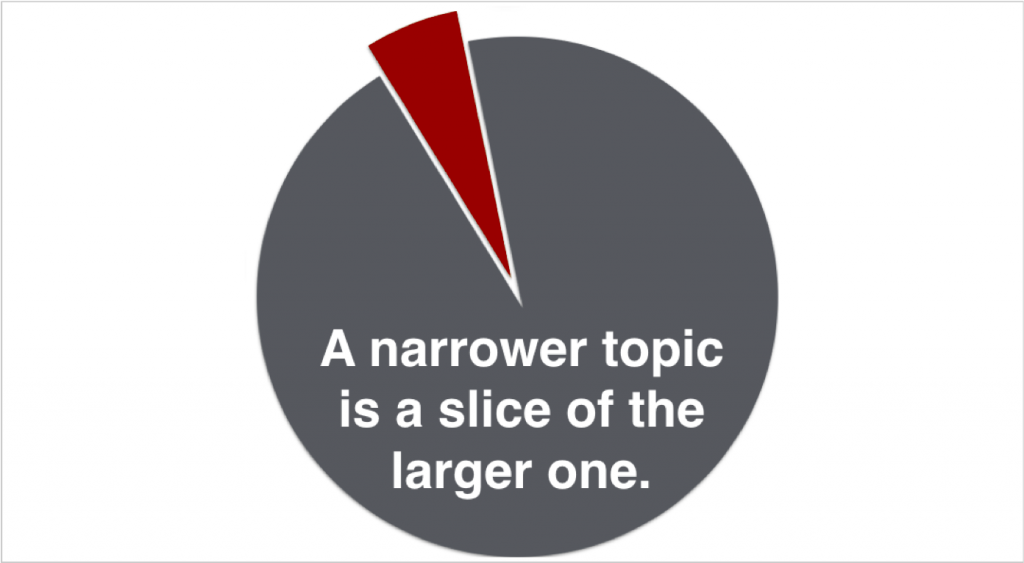
Ideas about a narrower topic can come from anywhere. In this case, a narrower topic boils down to deciding what’s interesting to you about “spring” that is related to what you’re learning in your horticulture class and small enough to manage in the time you have.
One way to get ideas would be to read about spring in Wikipedia, looking for things that seem interesting and relevant to your class, and then letting one thing lead to another as you keep reading and thinking about likely possibilities that are more narrow than the enormous “spring” topic. (Be sure to pay attention to the references at the bottom of most Wikipedia pages and pursue any that look interesting. Your instructor is not likely to let you cite Wikipedia, but those references may be citable scholarly sources that you could eventually decide to use.)
Or, instead, if it is spring at the time you could start by just looking around, admire the blooming trees on campus, and decide you’d like your poster to be about bud development on your favorites, the crabapple trees.
Anna Narrows Her Topic and Works on a Research Question
The Situation: Anna, an undergraduate, has been assigned a research paper on Antarctica. Her professor expects students to (1) narrow the topic on something more specific about Antarctica because they won’t have time to cover that whole topic. Then they are to (2) come up with a research question that their paper will answer.
The professor explained that the research question should be something they are interested in answering and that it must be more complicated than what they could answer with a quick Google search. He also said that research questions often start with either the word “how” or “why.”
What you should do:
- Read what Anna is thinking below as she tries to do the assignment.
- After the reading, answer the questions at the end of the monologue in your own mind.
- Check your answers with ours at the end of Anna’s interior monologue.
- Keep this demonstration in mind the next time you are in Anna’s spot, and you can mimic her actions and thinking about your own topic.
Anna’s Interior Monologue
Okay, I am going to have to write something—a research paper—about Antarctica. I don’t know anything about that place—I think it’s a continent. I can’t think of a single thing I’ve ever wanted to know about Antarctica. How will I come up with a research question about that place? Calls for Wikipedia, I guess.
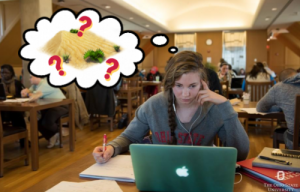
At https://en.wikipedia.org/wiki/Antarctica. Just skimming. Pretty boring stuff. Oh, look– Antarctica’s a desert! I guess “desert” doesn’t have to do with heat. That’s interesting. What else could it have to do with? Maybe lack of precipitation? But there’s lots of snow and ice there. Have to think about that—what makes a desert a desert.
It says one to five thousand people live there in research stations. Year round. Definitely the last thing I’d ever do. “…there is no evidence that it was seen by humans until the 19th century.” I never thought about whether anybody lived in Antarctica first, before the scientists and stuff.
Lots of names—explorer, explorer… boring. It says Amundson reached the South pole first. Who’s Amundson? But wait. It says, “One month later, the doomed Scott Expedition reached the pole.” Doomed? Doomed is always interesting. Where’s more about the Scott Expedition? I’m going to use that Control-F technique and type in Scott to see if I can find more about him on this page. Nothing beyond that one sentence shows up. Why would they have just that one sentence? I’ll have to click on the Scott Expedition link.
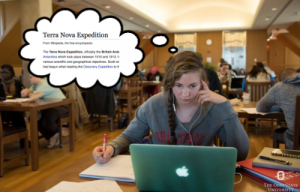
But it gives me a page called Terra Nova Expedition. What does that have to do with Scott? And just who was Scott? And why was his expedition doomed? There he is in a photo before going to Antarctica. Guess he was English. Other photos show him and his team in the snow. Oh, the expedition was named Terra Nova after the ship they sailed this time—in 1911. Scott had been there earlier on another ship.
Lots of stuff about preparing for the trip. Then stuff about expedition journeys once they were in Antarctica. Not very exciting—nothing about being doomed. I don’t want to write about this stuff.
Wait. The last paragraph of the first section says “For many years after his death, Scott’s status as tragic hero was unchallenged,” but then it says that in the 20th century people looked closer at the expedition’s management and at whether Scott and some of his team could be personally blamed for the catastrophe. That “remains controversial,” it says. Catastrophe? Personally blamed? Hmm.
Back to skimming. It all seems horrible to me. They actually planned to kill their ponies for meat, so when they actually did it, it was no surprise. Everything was extremely difficult. And then when they arrived at the South Pole, they found that the explorer Amundsen had beaten them. Must have been a big disappointment.
The homeward march was even worse. The weather got worse. The dog sleds that were supposed to meet them periodically with supplies didn’t show up. Or maybe the Scott group was lost and didn’t go to the right meeting places. Maybe that’s what that earlier statement meant about whether the decisions that were made were good ones. Scott’s diary said the crystallized snow made it seem like they were pushing and pulling the sledges through dry sand.
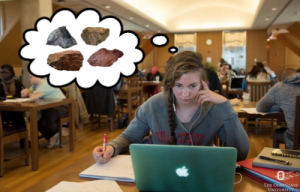
It says that before things turned really bad (really bad? You’ve already had to eat your horses!), Scott allowed his men to put 30 pounds of rocks with fossils on the sledges they were pushing and dragging. Now was that sensible? The men had to push or pull those sledges themselves. What if it was those rocks that actually doomed those men?
But here it says that those rocks are the proof of continental drift. So how did they know those rocks were so important? Was that knowledge worth their lives? Could they have known?
Wow–there is drama on this page! Scott’s diary is quoted about their troubles on the expedition—the relentless cold, frostbite, and the deaths of their dogs. One entry tells of a guy on Scott’s team “now with hands as well as feet pretty well useless” voluntarily leaving the tent and walking to his death. The diary says that the team member’s last words were ”I am just going outside and may be some time.” Ha!
They all seem lost and desperate but still have those sledges. Why would you keep pulling and pushing those sledges containing an extra 30 pounds of rock when you are so desperate and every step is life or death?
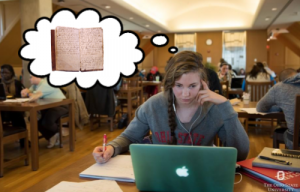
Then there’s Scott’s last diary entry, on March 29, 1912. “… It seems a pity but I do not think I can write more.” Well.
That diary apparently gave lots of locations of where he thought they were but maybe they were lost. It says they ended up only 11 miles from one of their supply stations. I wonder if anybody knows how close they were to where Scott thought they were.
I’d love to see that diary. Wouldn’t that be cool? Online? I’ll Google it.
Yes! At the British museum. Look at that! I can see Scott’s last entry IN HIS OWN HANDWRITING!
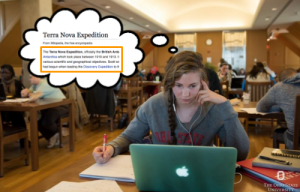
Actually, if I decide to write about something that requires reading the diary, it would be easier to not have to decipher his handwriting. Wonder whether there is a typed version of it online somewhere?
Maybe I should pay attention to the early paragraph on the Terra Nova Expedition page in Wikipedia—about it being controversial whether Scott and his team made bad decisions so that they brought most of their troubles on themselves. Can I narrow my topic to just the controversy over whether bad decisions of Scott and his crew doomed them? Maybe it’s too big a topic if I consider the decisions of all team members. Maybe I should just consider Scott’s decisions.
So what research question could come from that? Maybe: how did Scott’s decisions contribute to his team’s deaths in Antarctica? But am I talking about his decisions before or after they left for Antarctica? Or the whole time they were a team? Probably too many decisions involved. More focused: How did Scott’s decisions after reaching the South Pole help or hurt the chances of his team getting back safely? That’s not bad—maybe. If people have written about that. There are several of his decisions discussed on the Wikipedia page, and I know there are sources at the bottom of that page.
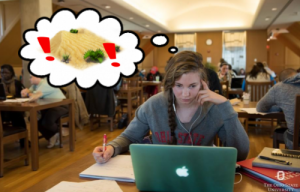
Let me think—what else did I see that was interesting or puzzling about all this? I remember being surprised that Antarctica is a desert. So maybe I could make Antarctica as a desert my topic. My research question could be something like: Why is Antarctica considered a desert? But there has to be a definition of deserts somewhere online, so that doesn’t sound complicated enough. Once you know the definition of desert, you’d know the answer to the question. Professor Sanders says research questions are more complicated than regular questions.
What’s a topic I could care about? A question I really wonder about? Maybe those rocks with the fossils in them. It’s just so hard to imagine desperate explorers continuing to push those sledges with an extra 30 pounds of rocks on them. Did they somehow know how important they would be? Or were they just curious about them? Why didn’t they ditch them? Or maybe they just didn’t realize how close to death they were. Maybe I could narrow my Antarctica topic to those rocks.

Maybe my topic could be something like: The rocks that Scott and his crew found in Antarctica that prove continental drift. Maybe my research question could be: How did Scott’s explorers choose the rocks they kept?
Well, now all I have is questions about my questions. Like, is my professor going to think the question about the rocks is still about Antarctica? Or is it all about continental drift or geology or even the psychology of desperate people? And what has been written about the finding of those rocks? Will I be able to find enough sources? I’m also wondering whether my question about Scott’s decisions is too big—do I have enough time for it?

I think my professor is the only one who can tell me whether my question about the rocks has enough to do with Antarctica. Since he’s the one who will be grading my paper. But a librarian can help me figure out the other things.
So Dr. Sanders and a librarian are next.
Questions
- Was Anna’s choice to start with Wikipedia a good choice? Why or why not?
- Have you ever used that Control-F technique?
- At what points does Anna think about where to look for information?
- At the end of this session, Anna hasn’t yet settled on a research question. So what did she accomplish? What good was all this searching and thinking?
Here are our answers below.
Our Answers:
- Was Anna’s choice to start with Wikipedia a good choice? Why or why not? Wikipedia is a great place to start a research project. Just make sure you move on from there, because it’s a not a good place to end up with your project. One place to move on to is the sources at the bottom of most Wikipedia pages.
- Have you ever used that Control-F technique? If you haven’t used the Control-F technique, we hope you will. It can save you a lot of time and effort reading online material.
- At what points does Anna think about where to look for information? When she began; when she wanted to know more about the Scott expedition; when she wonders whether she could read Scott’s diary online; when she thinks about what people could answer her questions.
- At the end of this session, Anna hasn’t yet settled on a research question. So what did she accomplish? What good was all this reading and thinking? There are probably many answers to this question. Ours includes that Anna learned more about Antarctica, the subject of her research project. She focused her thinking (even if she doesn’t end up using the possible research questions she’s considering) and practiced critical thinking skills, such as when she thought about what she could be interested in, when she worked to make her potential research questions more specific, and when she figured out what questions still needed answering at the end. She also practiced her skills at making meaning from what she read, investigating a story that she didn’t expect to be there and didn’t know had the potential of being one that she is interested in. She also now knows what questions she needs answered and whom to ask. These thinking skills are what college is all about. Anna is way beyond where she was when she started.
Background Reading

It’s wise to do some more reading about that narrower topic once you have it. For one reason, you probably don’t know much about it yet. For another, such reading will help you learn the terms used by professionals and scholars who have studied your narrower topic. Those terms are certain to be helpful when you’re looking for sources later, so jot them down or otherwise remember them.
For instance, if you were going to do research about the treatment for humans with bird flu, this background reading would teach you that professionals and scholars usually use the term avian influenza instead of bird flu when they write about it. (Often, they also use H1N1 or H1N9 to identify the strain.) If you didn’t learn that, you would miss the kinds of sources you’ll eventually need for your assignment.
Most sources other than journal articles are good sources for this initial reading, including the New York Times or other mainline American news outlets, Wikipedia, encyclopedias for the discipline your topic is in (horticulture for the crabapple bud development topic, for instance), dictionaries for the discipline, and manuals, handbooks, blogs, and web pages that could be relevant.
This initial reading could cause you to narrow your topic further, which is fine because narrower topics lead to greater specificity for what you have to find out.After this upfront work, you’re ready to start developing the research question(s) you will try to answer for your assignment.
While you are in the background reading phase of your research you will come across a lot of sources and won’t know yet if they will prove useful in the long run. A “low tech” option to keep track of your information is to use a Google doc or Word document to save all of your URLs (web addresses) so that you can access the sources easily. Google Scholar and college library databases also allow you to save the sources you find.
A handy type of software to help you keep track of all your findings is called citation management software. It will also be extremely valuable when it comes to using the resources you end up needing. Three of these tools are available for free to OSU students, staff and faculty. Learn more about these tools and how to access them.

Fuel Your Inspiration
Reading, scanning, looking at, and listening to information resources is very useful during any step of the process to develop research questions. Returning to sources can jog our memories, give us details that will help us focus, and help us connect disparate information–all of which will help us come up with research questions that we find interesting.
Regular Questions vs. Research Questions
Most of us look for information to answer questions every day, and we often act on the answers to those questions. Are research questions any different from most of the questions for which we seek information? Yes.
See how they’re different by looking over the examples of both kinds below and answering questions about them in the next activity.
Examples: Regular vs. Research Questions
Regular Question: What time is my movie showing at Lennox on Friday?
Research Question: How do “sleeper” films end up having outstanding attendance figures?
Regular Question: What can I do about my insomnia?
Research Question: How do flights more than 16 hours long affect the reflexes of commercial jet pilots?
Regular Question: How many children in the U.S. have allergies?
Research Question: How does his or her country of birth affect a child’s chances of developing asthma?
Regular Question: What year was metformin approved by the U.S. Food and Drug administration?
Research Question: Why are nanomedicines, such as doxorubicin, worth developing?
Regular Question: Could citizens register to vote at branches of the Columbus Public Library in 2016?
Research Question: How do public libraries in the United States support democracy?
Regular Question: What is the Whorfian Hypothesis?
Research Question: Why have linguists cared about the Whorfian hypothesis?
Regular Question: Where is the Apple, Inc. home office?
Research Question: Why are Apple’s marketing efforts so successful?
Regular Question: What is SARS?
Research Question: How could decision making about whether to declare a pandemic be improved?
Regular Question: Does MLA style recommend the use of generic male pronouns intended to refer to both males and females?
Research Question: How do age, gender, IQ, and socioeconomic status affect whether students interpret generic male pronouns as referring to both males and females?
Activity: Which Kind of Question
Influence of a Research Question
Whether you’re developing research questions for your personal life, your work for an employer, or for academic purposes, the process always forces you to figure out exactly:
- What you’re interested in finding out.
- What it’s feasible for you to find out (given your time, money, and access to information sources).
- How you can find it out, including what research methods will be necessary and what information sources will be relevant.
- What kind of claims you’ll be able to make or conclusions you’ll be able to draw about what you found out.
For academic purposes, you may have to develop research questions to carry out both large and small assignments. A smaller assignment may be to do research for a class discussion or to, say, write a blog post for a class; larger assignments may have you conduct research and then report it in a lab report, poster, term paper, or article.
For large projects, the research question (or questions) you develop will define or at least heavily influence:
- Your topic, in that research questions effectively narrow the topic you’ve first chosen or been assigned by your instructor.
- What, if any, hypotheses you test.
- Which information sources are relevant to your project.
- Which research methods are appropriate.
- What claims you can make or conclusions you can come to as a result of your research, including what thesis statement you should write for a term paper or what results section you should write about the data you collected in your own science or social science study.
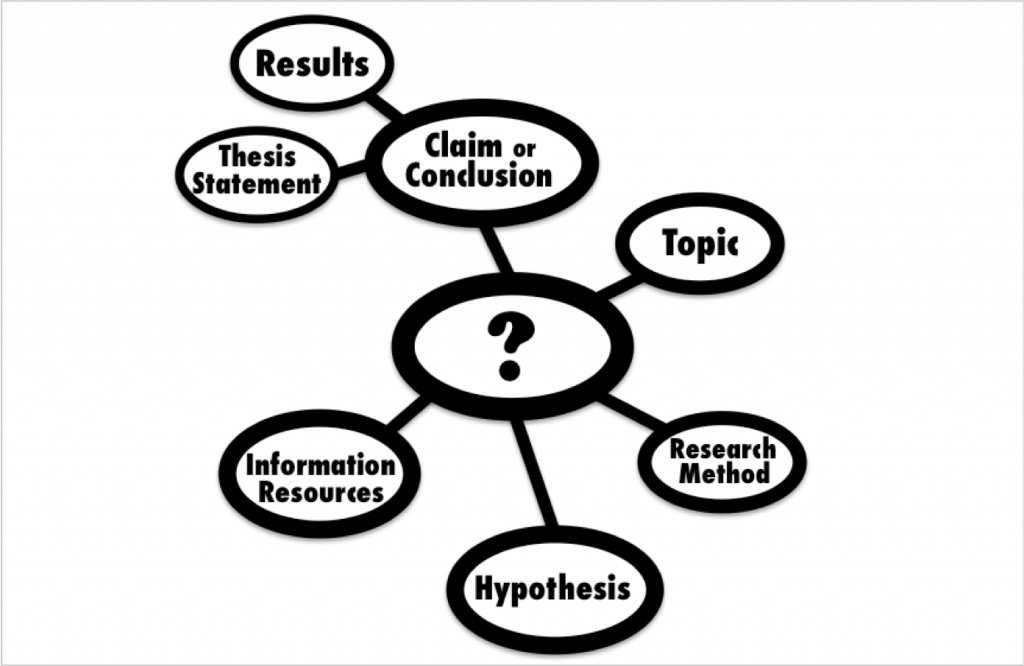
sources, and your claims or conclusions.
Thesis Statements in Research Writing
Within an essay, poster, or term paper, the thesis is the researcher’s answer to the research question(s). So as you develop research questions, you are effectively specifying what any thesis in your project will be about. While perhaps many research questions could have come from your original topic, your question states exactly which one(s) your thesis will be answering.
For example, a topic that starts out as “desert symbiosis” could eventually lead to a research question that is “how does the diversity of bacteria in the gut of the Sonoran Desert termite contribute to the termite’s survival?” In turn, the researcher’s thesis will answer that particular research question instead of the numerous other questions that could have come from the desert symbiosis topic.
Developing research questions is all part of a process that leads to greater and greater specificity for your project.
Tip: Don’t Make These Mistakes
Sometimes students inexperienced at working with research questions confuse them with the search statements they will type into the search box of a search engine or database when looking for sources for their project. Or they confuse research questions with the thesis statement that they will write when they report their research. The next activity will help you sort things out.
Activity: From Topic to Thesis Statement
Influence on Hypothesis
If you’re doing a study that predicts how variables are related (common in the sciences and social sciences), you’ll have to write at least one hypothesis. The research questions you write will contain the variables that will later appear in your hypothesis(es).
Activity: Guess the Question
You can usually figure out what the researcher’s research questions were by reading the title and some of the report. Take a look at this student essay, “Does Texting Affect Writing?” by Michaela Cullington, and determine what the students’ research question was.
Influence on Resources
You can’t tell whether an information source is relevant to your research until you know exactly what you’re trying to find out. Since the research question defines a source’s usefulness, looking at the research question should help you to divide information sources into two groups: those that are relevant to your research and those that are not—all based on whether each source can help you find out what you want to find out and/or report the answer.
Influence on Research Methods
Not all academic research writing involves primary research. However, primary research can be a powerful way to gain insights and new information about your question. There are three types of research methods:
Qualitative research uses a naturalistic, person centered approach to understand people’s beliefs, experiences, attitudes, behavior, and interactions. This type of research does not generate numerical data.
Quantitative research focuses on numerical data to answer research questions. This data may be collected and analyzed in a variety of ways to find trends, suggest causal relationships, or make generalized predictions about large populations. Most scholars rely on software such as SPSS to analyze quantitative data.
Mixed method research incorporates elements of both qualitative and quantitative research.
Your research question(s) will help you figure out what research methods you should use because the questions reflect what your research is intended to do. For instance, if your research question relates to describing a group, survey methods may work well. But a survey can’t answer cause-and-effect questions. If your research question focuses more on individual experiences, interviews may be a better way to collect information.
Influence on Claims or Conclusions
The research questions you write will reflect whether your research is intended to describe a group or situation, to explain or predict outcomes, or to demonstrate a cause-and-effect relationship(s) among variables. It’s those intentions and how well you carry out the study, including whether you used methods appropriate to the intentions, that will determine what claims or conclusions you can make as a result of your research.
Activity: Quick Check
Answer to Activity: Guess the Question
The answer to the “Guess the Question” Activity above is:
The research question is the same as the title: “Does texting affect writing?” It’s fine for you to use your research question as the title of your paper.
Developing Your Research Question
Because of all their influence, you might worry that research questions are very difficult to develop. Sometimes it can seem that way. But we’ll help you get the hang of it and, luckily, none of us has to come up with perfect ones right off. It’s more like doing a rough draft and then improving it. That’s why we talk about developing research questions instead of just writing them.
Steps for Developing a Research Question
The steps for developing a research question, listed below, can help you organize your thoughts.
Step 1: Pick a topic (or consider the one assigned to you).
Step 2: Write a narrower/smaller topic that is related to the first.
Step 3: List some potential questions that could logically be asked in relation to the narrow topic.
Step 4: Pick the question that you are most interested in.
Step 5: Change that question you’re interested in so that it is more focused.
MOVIE: Developing Research Questions
As you view this short video on how to develop research questions, think about the steps. Which step do you think is easiest? Which do you think is hardest?
[iframe src=”https://www.youtube.com/embed/1oJNO6PYZe4″ width=”560″ height=”315″ allowfullscreen=”allowfullscreen”]
Practice
Once you know the steps and their order, only three skills are involved in developing a research question:
- Imagining narrower topics about a larger one,
- Thinking of questions that stem from a narrow topic, and
- Focusing questions to eliminate their vagueness.
Every time you use these skills, it’s important to evaluate what you have produced—that’s just part of the process of turning rough drafts into more finished products.
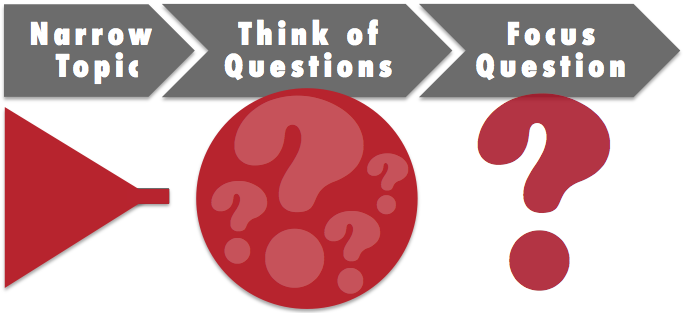
ACTIVITY: Developing a Research Question
Maybe you have a topic in mind, but aren’t sure how to form a research question around it. The trick is to think of a question related to your topic, but not answerable with a quick search. Also, try to be specific so that your research question can be fully answered in the final product for your research assignment.
ACTIVITY: Thinking of Questions
For each of the narrow topics below, think of a research question that is logically related to that topic. (Remember that good research questions often, but not always, start with “Why” or “How” because questions that begin that way usually require more analysis.)
Topics:
- U.S. investors’ attitudes about sustainability
- College students’ use of Snapchat
- The character Scout in To Kill a Mockingbird
- Nature-inspired nanotechnologies
- Marital therapy
After you think of each research question, evaluate it by asking whether it is:
- Logically related to the topic
- In question form
- Not answerable with a quick Google search
- Specific, not vague
Sometimes the first draft of a research question is still too broad, which can make your search for sources more challenging. Refining your question to remove vagueness or to target a specific aspect of the topic can help.
ACTIVITY: Focusing Questions
The first draft research questions below are not focused enough. Read them and identify at least one area of vagueness in each. Check your vagueness with what we identified. It’s great if you found more than we did because that can lead to research questions of greater specificity. See the bottom of the page for our answers.
First Drafts of Research Questions:
- Why have most electric car company start-ups failed?
- How do crabapple trees develop buds?
- How has NASA helped America?
- Why do many first-time elections soon after a country overthrows a dictator result in very conservative elected leaders?
- How is music composed and performed mostly by African-Americans connected to African-American history?
ANSWER TO ACTIVITY: Focusing Questions
Some answers to the “Focusing Questions” Activity above are:
Question 1: Why have most electric car company start-ups failed?
Vagueness: Which companies are we talking about? Worldwide or in a particular country?
Question 2: How do crabapple trees develop buds?
Vagueness: There are several kinds of crabapples. Should we talk only about one kind? Does it matter where the crabapple tree lives?
Question 3: How has NASA helped America?
Vagueness: NASA has had many projects. Should we should focus on one project they completed? Or projects during a particular time period?
Question 4: Why do many first-time elections soon after a country overthrows a dictator result in very conservative elected leaders?
Vagueness: What time period are we talking about? Many dictators have been overthrown and many countries have been involved. Perhaps we should focus on one country or one dictator or one time period.
Question 5: How is music composed and performed mostly by African-Americans connected to African-American history?
Vagueness: What kinds of music? Any particular performers and composers? When?

